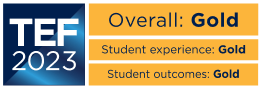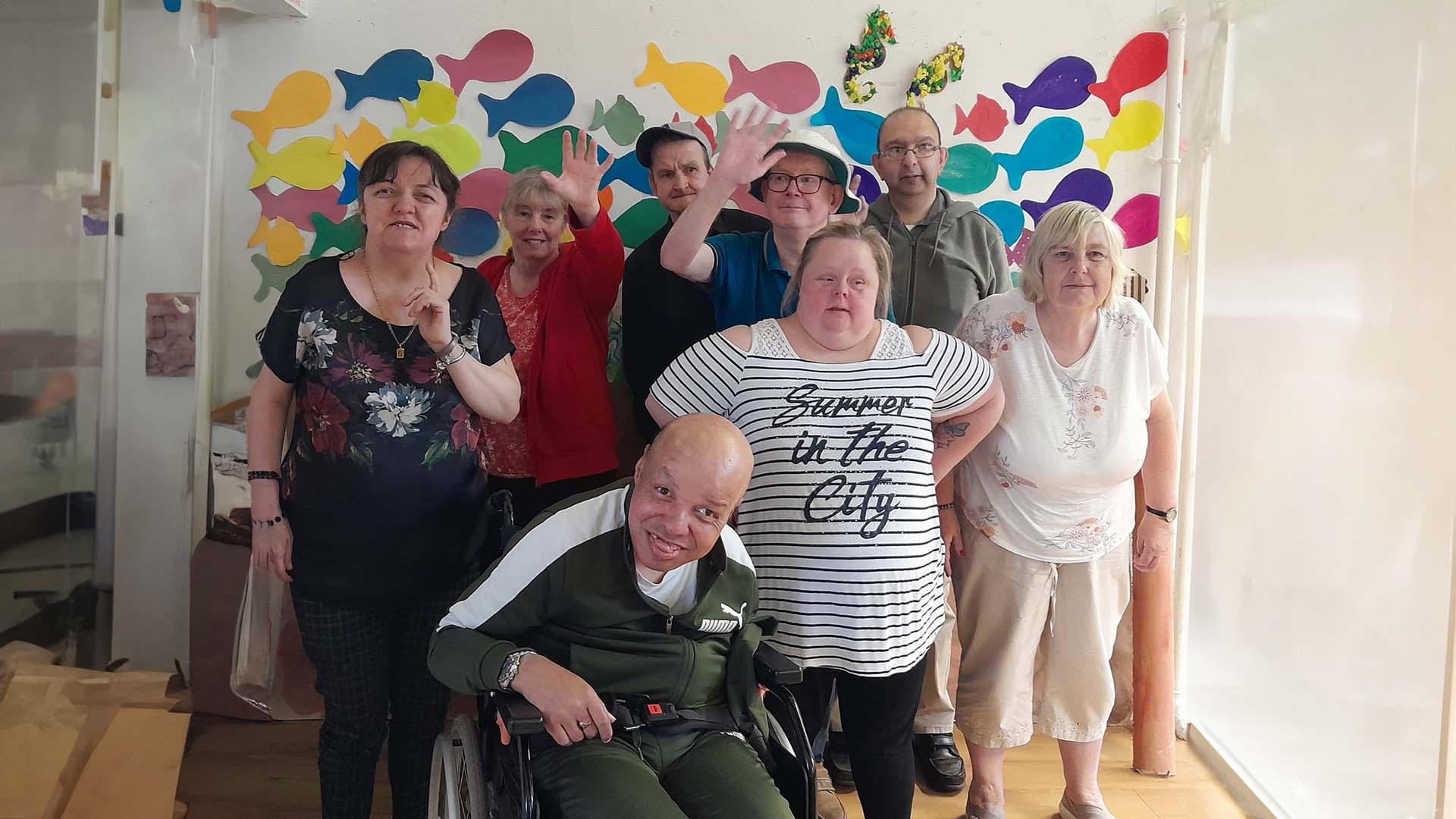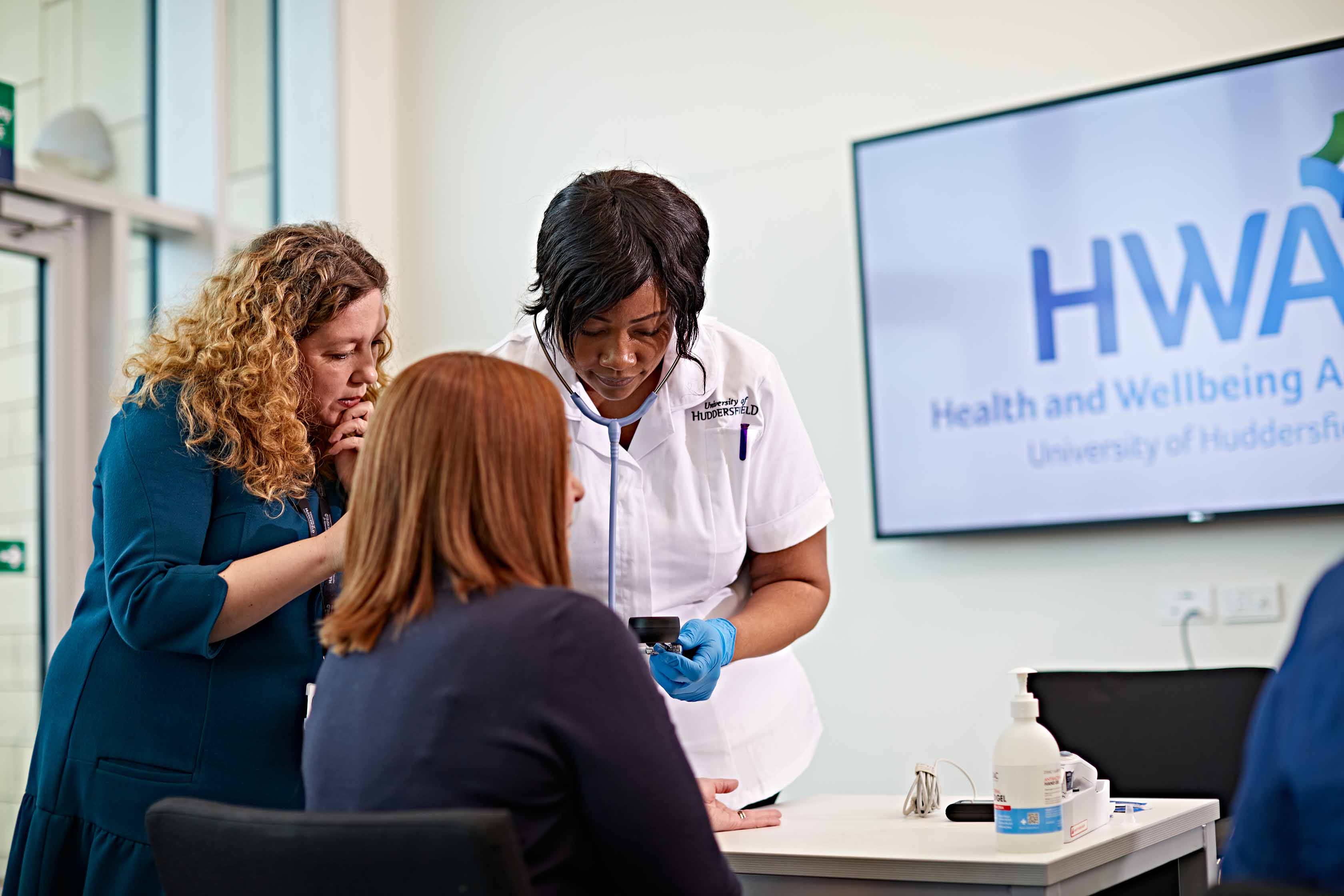Health Foundation Pathway leading to a BSc(Hons) Degree
Start Dates
21 September 2026
Duration
1 year full-time (Year 0 of a 4 year degree)
UCAS Tariff
64 points
Overview
Why choose Huddersfield for this course?
- Gain confidence using our state-of-the-art skills labs and immersive simulation facilities on our National Health Innovation Campus.
- You’ll learn from experienced health professionals and service users whose real-world insights bring teaching to life.
- Build communication, leadership and teamwork skills through our Health and Wellbeing Academy’s community-focused work experience opportunities.
This programme is not available to international students. Instead, international students should apply for our international foundation programmes delivered by our International Study Centre on campus. For more information please visit International Study Centre.
Are you looking for an exciting career in health or social care?
Through this pathway you’ll be studying Year 0 (Foundation Year) of the Health and Social Care with Foundation Year BSc(Hons) course (a 4-year course).
On successful completion of this year you could apply for Year 1 of a range of health professional courses. Alternatively, on successful completion of Health and Social Care with Foundation Year BSc(Hons) you’ll have the opportunity to progress to careers in diverse areas, including youth work, housing, domestic violence, social prescribing, and drug and alcohol support.
Our Health Foundation Pathway leading to a BSc(Hons) degree provides the opportunity for you to start your university journey and be part of a vibrant and diverse student community. You’ll have the opportunity to gain the skills, knowledge and support required to progress towards your chosen profession. In this year of study, you’ll complete five modules in the following:
- Preparing for Study: Foundations for Academic Success
- Preparing for Study: Research Project
- Working with People
- The Context of Health and Social Care
- Introduction to Anatomy and Physiology
On successful completion of this year you can continue to study on the Health and Social Care BSc(Hons) or you could apply for Year 1 of one of the following courses:
- Dental Hygiene and Dental Therapy BSc(Hons)*
- Diagnostic Radiography BSc(Hons)*
- Midwifery Studies BSc(Hons)*
- Nursing (Adult) BSc(Hons)*
- Nursing (Blended Learning) Adult BSc(Hons)*
- Nursing (Blended Learning) Child BSc(Hons)*
- Nursing (Blended Learning) Learning Disability BSc(Hons)*
- Nursing (Blended Learning) Mental Health BSc(Hons)*
- Nursing (Child) BSc(Hons)*
- Nursing (Learning Disability) BSc(Hons)*
- Nursing (Mental Health) BSc(Hons)*
- Occupational Therapy BSc(Hons)*
- Operating Department Practice BSc(Hons)*
- Paramedic Science BSc(Hons)*
- Physiotherapy BSc(Hons)*
- Physical Education and Youth Sport Coaching BSc(Hons)***
- Podiatry BSc(Hons)*
- Speech and Language Therapy BSc(Hons)*
- Sport and Exercise Science BSc(Hons)**
- Sport, Exercise and Nutrition BSc(Hons)**
*Eligibility to apply for Year 1 of the courses listed above is normally dependent on achieving an overall pass mark of at least 65 per cent. You'll also be expected to meet any GCSE/level 2 entry requirements of the degree course at the point of applying to join year 1 of the degree course. Any offer is subject to successful interview, references, satisfactory enhanced Disclosure and Barring Service (DBS) and occupational health clearances.
**Eligibility to apply for Year 1 of these courses is dependent on achieving an overall pass mark of at least 50 per cent. You'll also be expected to meet any GCSE/level 2 entry requirements of the degree course at the point of applying to join year 1 of the degree course.
***Progression into Year 1 of Physical Education and Youth Sport Coaching BSc(Hons) is dependent on achieving an overall pass mark of at least 50 per cent and obtain a satisfactory enhanced Disclosure and Barring Service (DBS) clearance prior to commencing year 1 of the degree course.
Why study Health Foundation Pathway leading to a BSc(Hons) Degree
During this Health Foundation Pathway, you’ll have the opportunity to develop skills and knowledge, and receive the support required for academic success in higher education. This will help you gain the skills to work with people in a variety of settings, as well as foundation knowledge of health-related anatomy and physiology.
You’ll have the opportunity to progress to careers in diverse areas, including youth work, housing, domestic violence, social prescribing, and drug and alcohol support. You'll be taught and supported throughout your degree by a supportive and experienced teaching team, who have worked in a range of health professional roles.
Also, our Public Partnership Group (PPG) will support your development as a compassionate, person-centred professional. You’ll engage with service users and carers through lectures, discussions, and simulations. Their lived experiences will help to build your communication skills, empathy, and the critical thinking needed to deliver outstanding care across diverse communities.
Entry Requirements
DDE at A Level.
64 UCAS tariff points from a combination of Level 3 qualifications.
MPP in BTEC Level 3 Extended Diploma.
Pass at T Level with D or E grade on core.
Access to Higher Education Diploma with 45 Level 3 credits, 15 at Merit, 30 at Pass.
64 UCAS tariff points from International Baccalaureate qualifications.
NCFE CACHE Technical Level 3 Extended Diploma/Level 3 Extended Diploma at grade D.
You do not require GCSE/Level 2 qualifications to join this course, however there might be GCSE/level 2 entry requirements for degree courses that you can apply for following completion of this course. Further information about entry requirements for specific degree courses is available from the University website.
If your first language is not English, you will need to meet the minimum requirements of an English Language qualification. The minimum for IELTS is 6.0 overall with no element lower than 5.5, or equivalent. Read more about the University’s entry requirements for students outside of the UK on our International Entry Requirements pages. If you have alternative qualifications or do not meet the IELTS requirement we also offer a range of Pre-Sessional English Programmes.
For further information please see the University's minimum entry requirements.
Course Details
Teaching and Assessment
Discover what to expect from your tutor contact time, assessment methods, and feedback process.
Your Career
On successful completion of Health and Social Care with Foundation Year BSc(Hons) you'll have the opportunity to progress to careers in diverse areas, including youth work, housing, domestic violence, social prescribing, and drug and alcohol support. Alternatively, on successful completion of Year 0, you'll have the opportunity to apply to undertake a degree in a range of health disciplines to enable you to become a registered health professional.
Fees and Finance
This information is for Home students applying to study at the University of Huddersfield in the academic year 2026/27.
Please note that tuition fees for subsequent years may rise in line with inflation (RPI-X) and/or Government policy.
From January 2027 the UK government is launching a new student funding system for people starting university education. Read more about the Lifelong Learning Entitlement (LLE).
For detailed information please visit https://www.hud.ac.uk/study/fees/
This information is for international students applying to study at the University of Huddersfield in the academic year 2026/27.
Please note that tuition fees for subsequent years may rise in line with inflation (RPI-X) and/or Government policy.
For detailed information please visit https://www.hud.ac.uk/international/fees-and-funding/
Scholarships and Bursaries
Discover what additional help you may be eligible for to support your University studies.
Tuition Fee Loans
Find out more about tuition fee loans available to eligible undergraduate students.
What’s included in your fee?
We want you to understand exactly what your fees will cover and what additional costs you may need to budget for when you decide to become a student with us.
If you have any questions about Fees and Finance, please email the Student Finance Team.
Explore More
Why Hud
Explore the unique opportunities and resources that make our institution a top choice for students seeking a well-rounded and future-focused education.
More Info
Careers support
We know you’re coming to university to study on your chosen subject, meet new people and broaden your horizons. However, we also help you to focus on life after you have graduated to ensure that your hard work pays off and you achieve your ambition.
Find out more about careers supportStudent support
At the University of Huddersfield, you’ll find support networks and services to help you get ahead in your studies and social life. Whether you study at undergraduate or postgraduate level, you’ll soon discover that you’re never far away from our dedicated staff and resources to help you to navigate through your personal student journey.
See our support servicesTeaching Excellence
Great teaching is engaging and inspiring — it helps you reach your full potential and prepares you for the future. We don’t just teach well — we excel — and we have the awards and recognition to prove it.
Find out moreInspiring Academics
Our researchers carry out world-leading work that makes a real difference to people’s lives. Staff within the Department of Allied Health Professions, Sport and Exercise may teach you on this course.
Find out more about our staffResearch Excellence
You’ll be taught by staff who want to support your learning and share the latest knowledge and research.
Find out moreAccommodation
Looking for student accommodation? Huddersfield has you covered. HudLets has a variety of accommodation types to choose from, no matter what your preference. HudLets is the University’s approved accommodation service, run by Huddersfield Students’ Union.
Take a look at your optionsFurther Study
If you want to continue your learning beyond your undergraduate degree, there is a range of financial support available for postgraduate study, including discounts for Huddersfield graduates.
Discover postgraduate coursesLegal information
When you enrol as a student of the University, your study and time with us will be governed by our terms and conditions, Handbook of Regulations and associated policies. It is important that you familiarise yourself with these as you will be asked to agree to them when you join us as a student. You will find a guide to the key terms here, along with the Student Protection Plan.
Although we always try and ensure we deliver our courses as described, sometimes we may have to make changes for the following reasons:
Changes to a course you have applied for but are not yet enrolled on
If we propose to make a major change to a course that you are holding an offer for, then we will tell you as soon as possible so that you can decide whether to withdraw your application prior to enrolment. We may occasionally have to withdraw a course you have applied for or combine your programme with another programme if we consider this reasonably necessary to ensure a good student experience, for example if there are not enough applicants. Where this is the case we will notify you as soon as reasonably possible and if you are unhappy with the change we will discuss with you other suitable courses we can transfer your application to. If you do not wish to transfer to another course with us, you may cancel your application and we will refund you any deposits or fees you have paid to us.
Changes to your course after you enrol as a student
Changes to option modules
Where your course allows you to choose modules from a range of options, we will review these each year and change them to reflect the expertise of our staff, current trends in research and as a result of student feedback or demand for certain modules. We will always ensure that you have an equivalent range of options to that advertised for the course. We will let you know in good time the options available for you to choose for the following year.
Major changes
We will only make major changes to non-optional modules on a course if it is necessary for us to do so and provided such changes are reasonable. A major change is a change that substantially changes the outcomes, or a significant part of your course, such as the nature of the award or a substantial change to module content, teaching days (part time provision), type of delivery or assessment of the core curriculum. For example, it may be necessary to make a major change to reflect changes in the law or the requirements of the University’s regulators or a commissioning or accrediting body. We may also make changes to improve the course in response to student, examiners’ or other course evaluators’ feedback or to ensure you are being taught current best practice. Major changes may also be necessary because of circumstances outside our reasonable control, such as a key member of staff being unable to teach due to illness, where they have a particular specialism that can’t be adequately covered by other members of staff; or due to pandemics, other disasters (such as fire, flood or war) or changes made by the government.
Major changes would usually be made with effect from the next academic year, but may happen sooner in an emergency. We will notify you as soon as possible should we need to make a major change and will consult with affected groups of students and any changes would only be made in accordance with our regulations. If you reasonably believe that the proposed change will cause you detriment or hardship we will, if appropriate, work with you to try to reduce the adverse effect on you or find an appropriate solution. Where an appropriate solution cannot be found and you let us know before the change takes effect you can cancel your registration and withdraw from the University without liability to the University for any additional tuition fees. We will provide reasonable support to assist you with transferring to another university if you wish to do so and you may be eligible for an exit award depending on how far through your course you are.
In exceptional circumstances, we may, for reasons outside of our control, be forced to discontinue or suspend your course. Where this is the case, a formal exit strategy will be followed in accordance with the student protection plan.
The Office for Students (OfS) is the principal regulator for the University.








